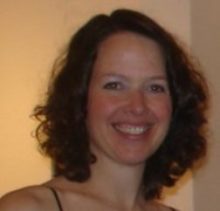Find below – when available – the titles and topics of the presentations, and a brief description of the faculty and student presenters.
FACULTY PRESENTERS

HANADI AL-SAMMAN – The Articulation of Trauma in Arab Women’s Diasporic Writings. Hanadi al-Samman is an Assistant Professor of Arabic language and literature in the Department of Middle Eastern and South Asian Literatures & Cultures (MESALC) at the University of Virginia. Her research interests range from contemporary Arabic literature, Islamic feminism, to gay representations in Arabic and diasporic literatures. Her upcoming book, Anxiety of Erasure: Trauma, Authorship, and the Diaspora in Arab Women’s Narrative examines the literature of Arab women writers of the European and North American diaspora, and formulates a theory of Arab women’s authorship influenced by Shahrazād’s orality syndrome, anxiety of erasure, and the tradition of female infanticide.
 MEHR FAROOQI – Poetics of Exile and the Indian Sub-continent. Mehr Farooqui , Assistant Professor in the UVa Department of Middle Eastern and South Asian Literature and Cultures. M. Farooqi grew up in north India, in a household where poets and writers became part of the family. She is specialized in the literary cultures of South Asia, especially in the Urdu language, literary culture and history of north India. The cultural conditions of creating texts, as well as the textual production of cultural meaning, are important aspects of literary history.
MEHR FAROOQI – Poetics of Exile and the Indian Sub-continent. Mehr Farooqui , Assistant Professor in the UVa Department of Middle Eastern and South Asian Literature and Cultures. M. Farooqi grew up in north India, in a household where poets and writers became part of the family. She is specialized in the literary cultures of South Asia, especially in the Urdu language, literary culture and history of north India. The cultural conditions of creating texts, as well as the textual production of cultural meaning, are important aspects of literary history.

KATHRYN M. GROSSMAN – A Guidebook to Les Travailleurs de la mer: Hugo’s ‘Channel Archipelago’. In presenting a reverse image of his absent homeland, Hugo’s exotic preface to Toilers of the Sea (1866; Les Travailleurs de la mer) subtly orients the reader toward a political reading of the novel, which extends the shadow history of the Second Empire laid out in Les Misérables (1862). Kathryn M. Grossman, professor of French at Pennsylvania State University. Her research includes three books on Hugo: The Early Novels of Victor Hugo: Towards a Poetics of Harmony (Droz, 1986), Figuring Transcendence in Les Misérables: Hugo’s Romantic Sublime (Southern Illinois UP, 1994), and a volume on Les Misérables in Twayne’s Masterwork Studies series (Twayne-Macmillan, 1996). She has also co-edited Confrontations: Politics and Aesthetics in Nineteenth-Century France (Rodopi, 2001) and published essays on such post-Revolutionary writers as Dickens, Orwell, Zamiatin, and George Sand and on the recycling of literary classics in other media. Her current work focuses on Hugo’s later novels, as well as on the pedagogy of literature.

JEAN-MARC HOVASSE – Keynote Talk: Les trois exils de Victor Hugo. Souvent considéré comme un seul bloc, l’exil de Victor Hugo (1852-1870) se décompose en trois exils successifs (la Belgique, Jersey, Guernesey) qui ont chacun des rythmes et des modalités propres, causes politiques et conséquences littéraires mêlées dont il s’agira de relever les permanences et les variations. Jean-Marc Hovasse, the Director of the Centre d’études des correspondances et journaux intimes (a CNRS laboratory attached to the Université de Brest). He recently published his second volume of Hugo’s biography, Victor Hugo, tome II, Pendant l’exil 1851-1864, Fayard, 1 280 pages.

MARÍA-INÉS LAGOS – Remaking a Woman’s Life: Isabel Allende’s Paula and The Sum of the Days. María-Inés Lagos, Professor of Spanish at the University of Virginia. Born in Santiago, Chile, she did her undergraduate work in Hispanic Literatures and Classics at the Catholic University of Valparaíso, and her M.A., and Ph.D. at Columbia University in New York. She serves in the editorial board of Revista de Estudios Hispánicos, Nomadías (University of Chile), and South Atlantic Modern Language Association (2008-10). Her fields of concentration are Latin American narrative, Latin American women’s fiction in the 20th century, and gender theory. She has authored and edited several books and published numerous articles.

FARZANEH MILANI – Iranian Women Writers in Diaspora. Farzaneh Milani is Professor in the UVa Department of Middle Eastern and South Asian Literature and Cultures and she is specialized in Persian Literature and Women’s Studies.

LAURENCE M. PORTER – Home away from Home: The Exile’s Homage to Guernsey in Les Travailleurs de la Mer (1866). Developing some intersubjective dimensions of character theory, this essay examines how Hugo weaves a rich texture from the contrasting motifs of home and exile while preserving an equilibrium between veiled autofiction and allegory. Laurence M. Porter, Professor of French and Comparative Literature emeritus, Michigan State University. Laurence Porter received all three degrees from Harvard, and taught 19th and 20th-century French literature, Comparative Literature, Women’s Studies, Francophone Studies, and Critical Theory at Michigan State University from 1963 to 2009, plus an Andrew W. Mellon Distinguished Visiting Professorship in Comparative Literature at the University of Pittsburgh. He serves on the Editorial or Advisory Boards of the French Review, Nineteenth-Century French Studies, Studies in Twentieth and Twenty-First Century Literature, and Women in French Studies. He has published fifteen books and about 120 articles or book chapters on every period of French literature and on several foreign literatures, including The Renaissance of the Lyric in French Romanticism, The Literary Dream in French Romanticism, The Crisis of French Symbolism, Women’s Vision in Western Literature, ‘The Interpretation of Dreams: Freud’s Theories Revisited, and a comprehensive book and several articles on Victor Hugo. He also writes an annual review article on critical theory for SubStance.

ISABEL K. ROCHE – England, Real and Imagined in Hugo’s L’Homme qui Rit. Dans cette intervention, nous examinerons la topographie de L’Homme qui rit pour en faire ressortir la manière dont les différentes dimensions de l’exil-géographique, psychologique, politique, parmi d’autres-y laissent leur trace. Isabel Roche is on the faculty of Bennington College (Bennington, Vermont, USA). She received a PhD in French literature from New York University in 2001, and has published articles in The French Review and French Forum. She also wrote the introduction and notes to Hugo’s The Hunchback of Notre-Dame and Leroux’s The Phantom of the Opera for the Barnes and Noble Classics series. Her book, Character and Meaning in the Novels of Victor Hugo, was published by Purdue University Press in 2007. Her research interests include the nineteenth-century French novel and French romanticism, and she is at present at work on a new project on the “literary animal” of the nineteenth century.

BILL VANDERWOLK – Victor Hugo’s Ideology of Disorder. This talk will examine how Victor Hugo in exile became a counter-historian to the régime of Louis-Napoléon by espousing an ideology of disorder in which l’harmonie des contrairesbecame a natural counterweight to the emperor’s orderly society. Ph.D. (North Carolina) in French. I’ve been teaching French at Bowdoin College since 1984. Full professor since 1998. Named Henry Wadsworth Longfellow Professor of Modern Languages in 2007. Three books: Flaubert Remembers (1991), Memory, History and Fiction in the Novels of Patrick Modiano (1998), Victor Hugo in Exile (2006). Currently teaching half-time and serving the rest of the time as Associate Dean for Faculty Development.
STUDENT PRESENTERS
ABENA HAGAN-BROWN & JACQUELINE S. STEVENS – La Lutte pour contrôler le génie : l’ouragan insurmontable. Notre projet traite de la manière dont Victor Hugo a abordé et contemplé l’idée du génie pendant son long exil entre 1851 et 1870. L’isolement et le vaste océan auxquels Hugo a été confronté pendant son exil ont contribué au développement de la pensée de ce grand homme. Pendant son exil, Hugo était entouré par l’océan et il a beaucoup puisé son inspiration de son environnement. Il est d’abord allé à Jersey. Après trois années passées sur cette île, il l’a quittée pour Guernesey, une autre île de la Manche

Abena Hagan-Brown Abena Hagan-Brown, a second-year University of Virginia student currently from Centreville, VA, has lived in various countries, including a stay in the Ivory Coast as a child. The subsequent loss of her French fluency sparked an ongoing interest in the language and culture. In 2007, she studied in Paris for six weeks with her high school, Choate Rosemary Hall. Since entering university, her love for all things French has grown exponentially, and she hopes to double-major in French and biology. In her free time, Abena enjoys sports, music, television, and above all else, food.

Jacqueline S. Stevens is a second-year pre-med student from Burlington, Vermont who is majoring in French and biochemistry at the University of Virginia. She is very excited to participate in the colloquium and to present with her partner, Abena, their research around how Hugo’s ideas about genius developed during exile. In her free time, Jacqueline dances with UVA’s Rhapsody Ballet Ensemble, serves on the Women’s Leadership Development Program committee, volunteers with Computers for Kids, and works with the UVA branch of Habitat for Humanity.

EGLANTINE MORVANT – Le Fantasme d’un exil pour le Misanthrope – dernier fil du lien social pour une âme rongée jusqu’à la corde. Eglantine Morvant obtained a Maîtrise de Lettres Modernes from Université de Haute- Bretagne, Rennes 2, France, specializing in French eighteenth-century- literature, writing her Mémoire de maîtrise on Diderot. Her DEA in Littérature et Civilisation Françaises is from the Université de la Sorbonne Nouvelle, Paris III, where she specialized in French eventeenth-century literature working under the direction of Hélène Merlin-Kajman. Eglantine is currently in her fifth year of the Ph.D. program at UVa. Enjoying the All- But-Dissertation status, she’s now working on her dissertation, provisionally titled “La relation interpersonnelle au principe du lien social — ses représentations littéraires chez Molière, Madame de La Fayette, La Fontaine, Pascal”, under the direction of John D. Lyons.

SHERRI ROSE – Art in Exile: Georges Rodenbach’s Flemish creations in Fin-de-siècle Paris. Georges Rodenbach, a Belgian symbolist author, spent the last ten years of his life in Paris during which time he published several works including L’Art en Exil (1889) and his most well known novel Bruges-la-Morte (1892). This presentation will examine the role of the Flemish city in Rodenbach’s later works, along with exploring how thematic elements such as silence and vision are embedded in his experience of estrangement. Sherri Rose came to the lovely town of Charlottesville in 2004, obtained her MA in 2006 and is currently a doctoral student. She was born in Virginia and graduated with a B.A. in French from Centre College (Danville, KY) in 2004. During her undergraduate study she spent a semester in Strasbourg followed by a month internship at the CLA (Centre de linguistique appliquée) in Besançon. During the summer of 2005 she enjoyed spending a month in Provence as a tutor/nanny- anything to travel! Most recently she spent a year in Lyon as a lectrice teaching English at the Université de Lyon 2. Her interests include the novel in the 19th and 20th centuries and contemporary French culture and cinema.
